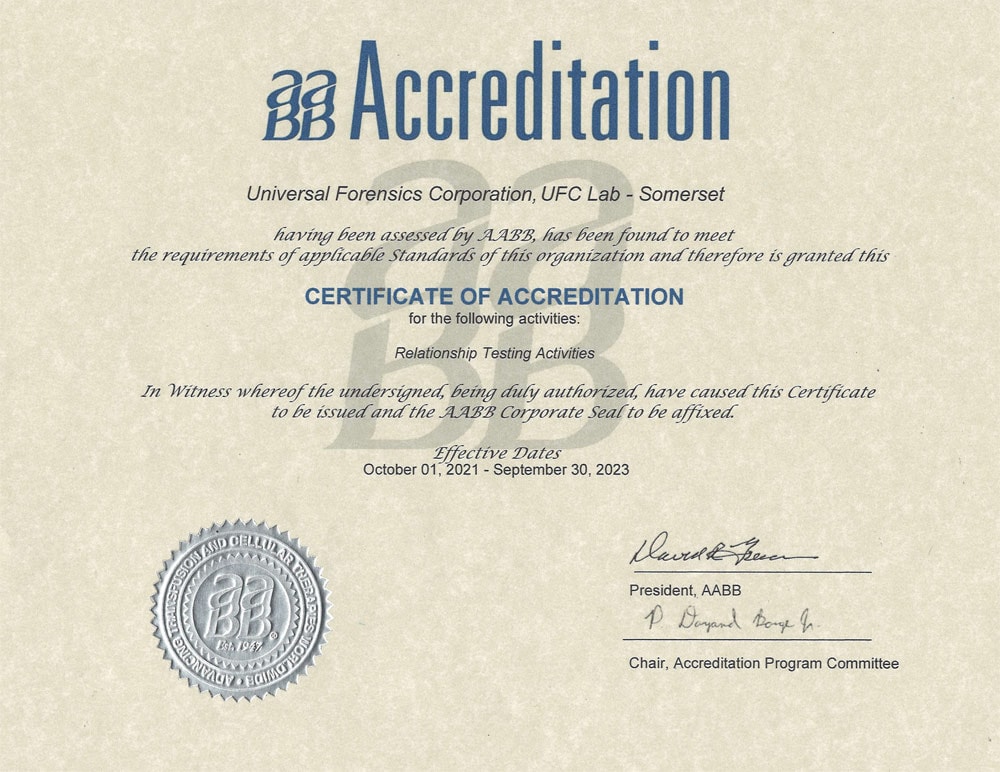How Accurate Is Sibling DNA Testing?

Many people are familiar with the idea of DNA testing, but may believe it begins and ends with paternity testing. This is not the case— familial DNA tests can also determine maternity, aunts and uncles, and siblings. However, while paternity testing provides very conclusive results, sibling DNA testing is not always as reliable.
This blog explores what sibling DNA testing is, how accurate it can be, and whether two biological siblings can have different results on a sibling DNA test. To find out more or to order a test, contact our knowledgeable team at ReliaLab today.
What Is Sibling DNA Testing?
These tests use DNA samples (hereditary genetic material) to analyze whether two people are related genetically. The result will show whether or not there is any probability the two people are biological siblings, whether they are full siblings (sharing the same two parents), half siblings (sharing one parent), or if they are not siblings at all.
Why Would Siblings Need A DNA Test?
Most often, siblings require a DNA test to determine paternity— that is, whether or not the two people share a biological father. This may be simply for their own knowledge, or for legal reasons such as to secure Social Security benefits or receive an inheritance. In many states in the US (other than New York) and Britain, sibling DNA tests can also be used to assist with immigration applications by proving biological relationships.
In some cases, the potential biological father can present for testing, but this is not always possible. When the potential father cannot be tested for whatever reason (whether the father is no longer alive, isn’t able to be reached, or isn’t willing to participate), people may use sibling DNA tests instead.
Rarely, but still possible, sibling DNA tests can be performed to determine maternity as well as paternity. This is mostly used in adoption cases, and often occurs many years or even decades after the child is born.
Is Sibling DNA Testing Accurate?
This is a common question, but there isn’t a definitive answer that provides a conclusive ‘yes’ or ‘no’.
Sibling DNA testing is certainly not as conclusive as paternity DNA testing, and it relies on statistics and probability. This is because when two people are biological siblings, they share 50% of the same genes. As such, there is 50% remaining that cannot be accounted for. When people are half siblings, they share 25% of the same genes, which can make determining probability more difficult again.
It is possible to boost the certainty of the result by testing either biological parent of a sibling, but this is not always possible for reasons such as in paternity testing. However, it is important to note that the more genetic testing participants, the higher the chance of a more conclusive result.
Can Two Biological Siblings Have Different DNA Tests?
Yes, two biological siblings can have different DNA tests, which is the reason why the highest probability the tests can return is 99%. This is because of the variations in the mother’s egg DNA and the father’s sperm DNA.
This can occur in full siblings, and even twins, including identical twins. In a study of over 381 pairs of identical twins (including two sets of identical triplets), only 38 were found to have genetically identical DNA. As such, it is highly likely that two full biological siblings will return different DNA tests to some degree.
Are Sibling DNA Tests Conclusive?
Sibling DNA tests cannot be 100% conclusive, as genetic factors between siblings can differ for both full and half siblings. However, as mentioned earlier, the more biological participants that are involved in testing can increase the conclusiveness of the tests conducted. Two siblings can do the test and obtain a statistically likely result, and if one of the biological parents also has their DNA analyzed, this can increase the conclusiveness. This conclusiveness is strengthened with each biological DNA test conducted.
Interested In Ordering A Sibling DNA Test?
If you’ve been wondering if a sibling DNA test is right for you, we hope this article has helped to answer some questions you may have had. Whether your interest is simply curiosity or for legal or health reasons, sibling DNA testing is an option you can consider. If you’re interested in sibling DNA testing, contact our team at ReliaLab today.








